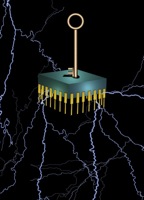Difference between revisions of "Immunity"
m (Text replacement - "http://" to "https://") |
|||
| Line 1: | Line 1: | ||
[[File:lighterstill.jpg]][[File:Immunity_esd.jpg|right|frame]] | [[File:lighterstill.jpg]][[File:Immunity_esd.jpg|right|frame]] | ||
| − | *Date: [ | + | *Date: [https://www.wikipedia.org/wiki/14th_Century 14th century] |
==Definitions== | ==Definitions== | ||
*1 : the [[quality]] or [[state]] of being immune; especially : a condition of being able to [[resist]] a particular [[disease]] especially through preventing [[development]] of a pathogenic [[microorganism]] or by counteracting the [[effects]] of its products | *1 : the [[quality]] or [[state]] of being immune; especially : a condition of being able to [[resist]] a particular [[disease]] especially through preventing [[development]] of a pathogenic [[microorganism]] or by counteracting the [[effects]] of its products | ||
| Line 7: | Line 7: | ||
'''Immunity''' is a [[biological]] term that describes a [[state]] of having sufficient [[biological]] [[defense]]s to avoid infection, [[disease]], or other unwanted [[biological]] [[invasion]]. Immunity involves both specific and non-specific components. The non-specific components act either as barriers or as eliminators of wide range of pathogens irrespective of antigenic specificity. Other components of the immune system adapt themselves to each new disease encountered and are able to generate pathogen-specific immunity. | '''Immunity''' is a [[biological]] term that describes a [[state]] of having sufficient [[biological]] [[defense]]s to avoid infection, [[disease]], or other unwanted [[biological]] [[invasion]]. Immunity involves both specific and non-specific components. The non-specific components act either as barriers or as eliminators of wide range of pathogens irrespective of antigenic specificity. Other components of the immune system adapt themselves to each new disease encountered and are able to generate pathogen-specific immunity. | ||
| − | [ | + | [https://en.wikipedia.org/wiki/Adaptive_immunity Adaptive immunity] is often sub-divided into two major [[types]] depending on how the immunity was introduced. |
*''Naturally acquired immunity'' occurs through contact with a [[disease]] causing [[agent]], when the contact was not [[deliberate]], whereas | *''Naturally acquired immunity'' occurs through contact with a [[disease]] causing [[agent]], when the contact was not [[deliberate]], whereas | ||
*''Artificially acquired immunity'' [[develops]] only through [[deliberate]] [[actions]] such as vaccination. Both [[naturally]] and [[artificially]] acquired immunity can be further subdivided depending on whether immunity is induced in the [[host]] or passively [[transfer]]red from a immune host. | *''Artificially acquired immunity'' [[develops]] only through [[deliberate]] [[actions]] such as vaccination. Both [[naturally]] and [[artificially]] acquired immunity can be further subdivided depending on whether immunity is induced in the [[host]] or passively [[transfer]]red from a immune host. | ||
| − | ''Passive immunity'' is acquired through [[transfer]] of antibodies or activated T-cells from an immune host, and is short lived -- usually lasting only a few months ''Active immunity'' is induced in the [[host]] itself by antigen, and lasts much longer, sometimes life-long.[ | + | ''Passive immunity'' is acquired through [[transfer]] of antibodies or activated T-cells from an immune host, and is short lived -- usually lasting only a few months ''Active immunity'' is induced in the [[host]] itself by antigen, and lasts much longer, sometimes life-long.[https://en.wikipedia.org/wiki/Immunity_%28medical%29] |
==See also== | ==See also== | ||
*'''''[https://en.wikipedia.org/wiki/Immune_system Immune System]''''' | *'''''[https://en.wikipedia.org/wiki/Immune_system Immune System]''''' | ||
[[Category: Health]] | [[Category: Health]] | ||
Latest revision as of 23:56, 12 December 2020
- Date: 14th century
Definitions
- 1 : the quality or state of being immune; especially : a condition of being able to resist a particular disease especially through preventing development of a pathogenic microorganism or by counteracting the effects of its products
Description
Immunity is a biological term that describes a state of having sufficient biological defenses to avoid infection, disease, or other unwanted biological invasion. Immunity involves both specific and non-specific components. The non-specific components act either as barriers or as eliminators of wide range of pathogens irrespective of antigenic specificity. Other components of the immune system adapt themselves to each new disease encountered and are able to generate pathogen-specific immunity.
Adaptive immunity is often sub-divided into two major types depending on how the immunity was introduced.
- Naturally acquired immunity occurs through contact with a disease causing agent, when the contact was not deliberate, whereas
- Artificially acquired immunity develops only through deliberate actions such as vaccination. Both naturally and artificially acquired immunity can be further subdivided depending on whether immunity is induced in the host or passively transferred from a immune host.
Passive immunity is acquired through transfer of antibodies or activated T-cells from an immune host, and is short lived -- usually lasting only a few months Active immunity is induced in the host itself by antigen, and lasts much longer, sometimes life-long.[1]
